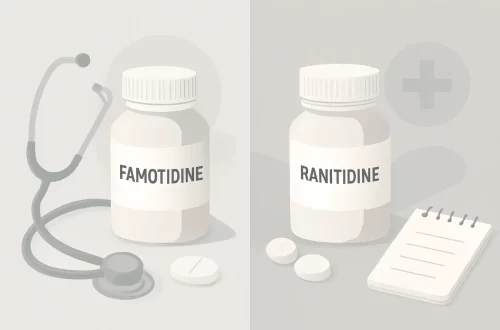
Do Facials Help Acne? Exploring the Benefits and Myths
Facial treatments have long been a staple in skincare routines, often touted for their ability to rejuvenate the skin and address a variety of skin concerns. Among these concerns, acne stands out as a prevalent issue that affects people of all ages. The journey to clear skin can be fraught with challenges, from hormonal fluctuations to lifestyle choices, leading many to seek effective solutions. Facials are marketed not only as a pampering experience but also as a potential remedy for acne by targeting underlying issues such as excess oil production and clogged pores.
As individuals navigate the vast landscape of skincare options, it’s crucial to understand the effectiveness and limitations of facials in treating acne. While some swear by their benefits, others remain skeptical about their true impact on skin health. This divergence of opinion can be confusing, especially for those who are desperate for clear skin. An exploration of facials reveals a blend of science, anecdotal evidence, and a fair share of myths that can cloud judgment. Understanding these elements can empower individuals to make informed decisions about their skincare regimens.
Understanding Acne and Its Causes
Acne is a common skin condition characterized by the presence of pimples, blackheads, and cysts. It primarily occurs when hair follicles become clogged with oil and dead skin cells. This blockage creates an ideal environment for bacteria to thrive, leading to inflammation and the development of acne lesions. While the most recognizable form of acne is associated with puberty, it can affect individuals at any stage of life.
Several factors contribute to acne development, including hormonal changes, diet, stress, and genetics. Hormones, particularly androgens, can increase oil production in the skin, which plays a significant role in acne formation. Diets high in refined sugars and dairy products have also been linked to worsening acne symptoms. Additionally, stress can trigger hormonal fluctuations, further exacerbating the condition.
Understanding the underlying causes of acne is essential when considering treatment options, including facials. Certain types of facials may help alleviate symptoms by addressing oiliness or inflammation, but they are not a one-size-fits-all solution. Furthermore, it’s vital to consult with a skincare professional to determine the most effective approach tailored to individual needs.
The Role of Facials in Acne Treatment
Facials can be beneficial in managing acne, but their effectiveness largely depends on the type of facial and the specific products used. Many facials designed for acne-prone skin focus on deep cleansing, exfoliation, and hydration. These treatments aim to remove excess oil, unclog pores, and soothe inflammation, which can contribute to clearer skin.
For instance, a typical acne facial may include steam to open up pores, followed by gentle extraction of blackheads and whiteheads. Exfoliating masks containing ingredients like salicylic acid or glycolic acid help remove dead skin cells and promote cell turnover. This process can reduce the likelihood of future breakouts by keeping pores clear.
Moreover, facials often incorporate soothing ingredients such as aloe vera and chamomile, which can help calm irritated skin. Regular treatments may also enhance blood circulation, promoting healing and skin regeneration. However, it’s essential to remember that while facials can provide temporary relief and improvement, they should be part of a comprehensive skincare regimen that includes daily cleansing, moisturizing, and targeted treatments.
It’s also important to note that not all facials are created equal. Some may use harsh products that could irritate the skin further, especially for those with sensitive or inflamed acne. Therefore, it is crucial to communicate with the esthetician about your skin type and concerns to ensure the right products and techniques are employed.
Common Myths Surrounding Facials and Acne
With the rise of social media and beauty influencers, several myths about facials and their effects on acne have emerged. One prevalent myth is that all facials are beneficial for acne-prone skin. In reality, this is far from true. Some facials may aggravate acne conditions, particularly those that involve heavy creams or oils that can clog pores.
Another common misconception is that facials provide a permanent solution to acne. While they can offer immediate improvements and a boost to your skincare routine, they are not a substitute for a targeted acne treatment plan. Acne is a chronic condition that often requires ongoing management, including lifestyle changes and possibly medications prescribed by a healthcare professional.
Additionally, many believe that facials can completely remove acne scars. While some facial treatments may help reduce the appearance of scars over time, they cannot erase them entirely. Procedures like chemical peels, microneedling, and laser therapy are often more effective for this purpose and should be considered as part of a long-term skin improvement strategy.
Lastly, there is a myth that facials can be performed frequently without any consequences. Over-treating the skin can lead to irritation, increased oil production, and ultimately more breakouts. It is essential to allow the skin time to recover between treatments and to follow a proper at-home skincare routine.
Choosing the Right Facial for Acne-Prone Skin
Selecting the appropriate facial is crucial for those dealing with acne. Not all facials are suitable for every skin type, and understanding your unique skin concerns will guide you in making the best choice. Look for facials specifically formulated for acne-prone skin, which typically use non-comedogenic products that won’t clog pores.
Consulting with a licensed esthetician can provide valuable insights into the types of facials that would best suit your needs. They can assess your skin type, discuss your acne history, and recommend products and treatments tailored to your condition.
Consider facial treatments that include exfoliation, such as chemical peels, which can help in reducing the buildup of dead skin cells. Additionally, look for facials that incorporate soothing and anti-inflammatory ingredients to calm the skin, such as tea tree oil or green tea extract.
Frequency is another important factor. While regular facials can be beneficial, spacing them out appropriately is essential to avoid irritation. A monthly facial is often recommended, but this can vary based on individual skin needs and the products used during the treatment.
Remember, facials should complement a consistent skincare routine that includes proper cleansing, moisturizing, and targeted treatments for acne. Always follow post-facial care instructions to maximize the benefits and minimize the risk of breakouts.
In conclusion, while facials can be a valuable tool in managing acne, they are not a standalone solution. A comprehensive approach that includes professional advice, consistent skincare practices, and a healthy lifestyle is key to achieving and maintaining clear skin.
**Disclaimer:** This article is not meant to provide medical advice. Please consult a healthcare professional for any health concerns or skin conditions.




